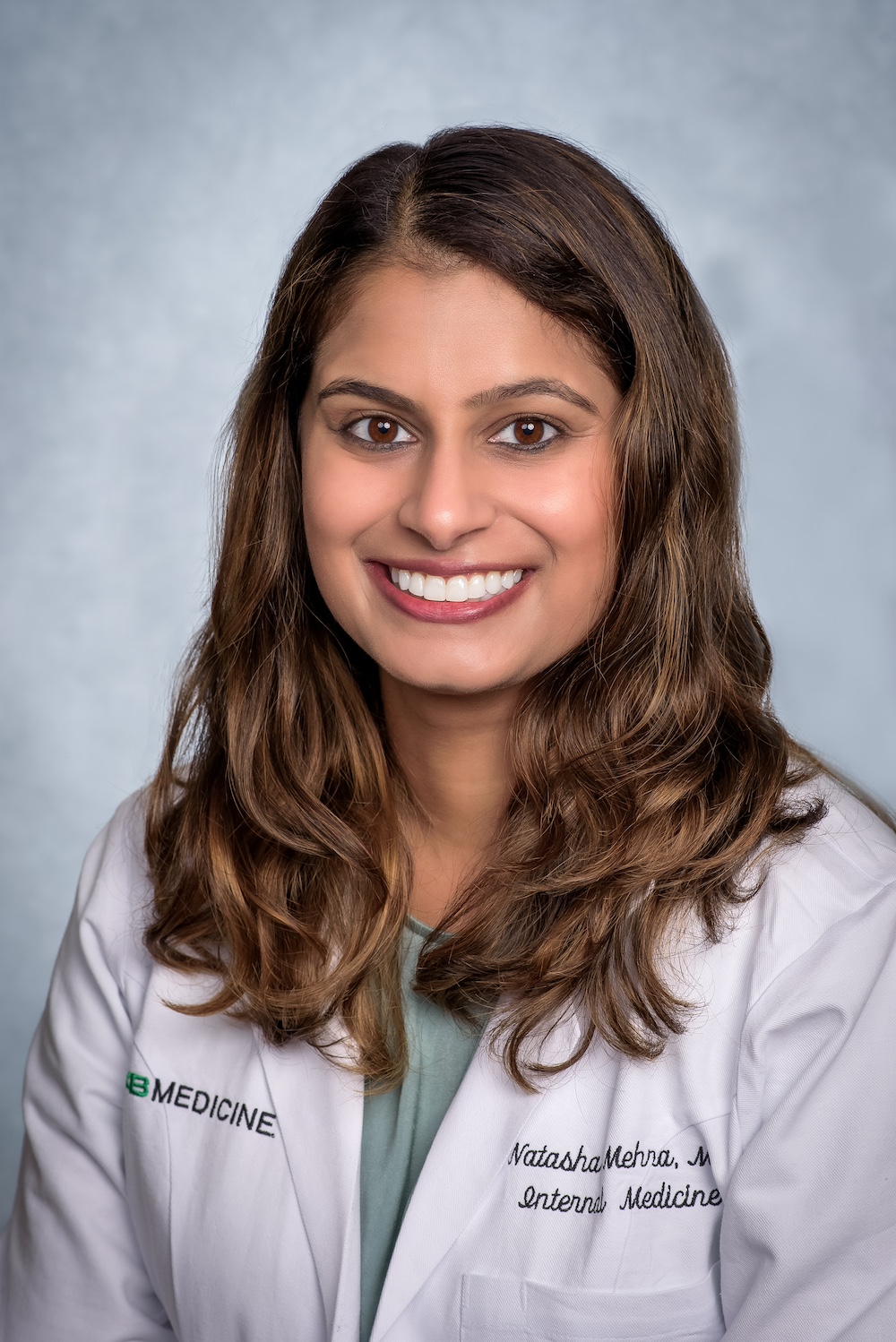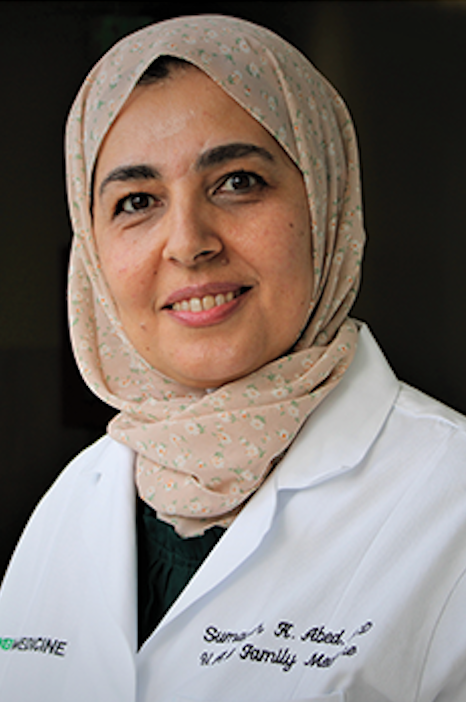Natasha Mehra, M.D., assistant professor in the division of General Internal Medicine, was named faculty director, and Sumayah Abed, M.D., an assistant professor in the department of Family and Community Medicine, was named Women’s Health Director of the UAB Equal Access Birmingham (EAB) clinic effective Jan. 1, 2024. Natasha Mehra, M.D.
Natasha Mehra, M.D.
Mehra is a general internal medicine physician who practices primary care and hospital medicine with a special interest in teaching undergraduate and graduate medical education as well as serving underserved and underprivileged populations.
Mehra graduated from UAB with an undergraduate neuroscience degree and then attended the Heersink School of Medicine. She volunteered at EAB throughout medical school and found the opportunity to work with patients who did not have access to appropriate care incredibly fulfilling. Today, she is the program director, passionate about giving back to her students and their patients.
“Being a student at EAB, I remember being so excited to work with patients,” said Mehra. “It's been great to be on the other side of that--seeing the eager looks on students' faces and the wheels turning in their heads as we talk about patients.”
EAB is an after-hours student-run free clinic that serves the uninsured and underinsured in the greater Birmingham community while also providing a meaningful service-learning experience to Heersink School of Medicine students.
“The best part of EAB, which I'm not sure everyone realizes, is that it's completely student-led,” said Mehra. “I am the clinic director and the overseeing M.D., so I check labs and oversee logistics, but the medical students do everything day to day.”
EAB provides primary care, pharmacy, health education, community health screening, social services, and occupational and physical therapy services to the uninsured. Medical students examine patients, schedule appointments, organize and clean the clinic, follow up to ensure their referrals have been placed, operate the clinic’s medication dispensary, and regulate clinic supplies.
“They really run the ship, and I’m there to help them however I can and, at a larger level, look into clinic operations and see how we can improve things,” said Mehra.
Mehra has several goals for her next two years as director. She aims to gain the capability to perform labs on-site to reduce the number of clinics patients have to visit, partner with local pharmacies to diversify the clinic’s dispensary, and expand the women’s health program to include services like pap smears, mammograms, STI testing, etc.
To help achieve this second goal, EAB recently brought on Abed as the new Women’s Health Director. Abed has been volunteering with the EAB clinic for over four years, but she always felt the women’s health aspect was lacking and sometimes entirely missing.
 Sumayah Abed, M.D.“I tried to focus on counseling when students checked out female patients ages 21 to 65, and I found that we were not doing enough for our patients or students,” said Abed.
Sumayah Abed, M.D.“I tried to focus on counseling when students checked out female patients ages 21 to 65, and I found that we were not doing enough for our patients or students,” said Abed.
Previously, EAB’s reproductive health clinic occurred once every six months, but Abed plans to open it once a month going forward.
“Patients had no access to reproductive health services, students were losing the opportunity to learn how to do pap smears, counsel patients on subjects like preconception or post-menopause, conduct screenings, and manage abnormalities like Polycystic Ovary syndrome or menstrual abnormalities,” said Abed.
Abed also aims to open the clinic to all students so that everyone can gain experience.
“The plan is to make the reproductive health clinic more frequent so all students, not only the people interested in OBGYN, can participate,” said Abed. “Maybe they are interested in family medicine--they need to know how to do pap smears, conduct screening, and counsel patients in this area.”
For that same reason, Abed is forming an alliance with the UAB School of Nursing Midwifery program to give students an interdisciplinary education.
“Sharon Holley, the Nurse Midwifery Pathway Director, and I had a great discussion about giving students an interdisciplinary education because midwives also need that OBGYN background,” said Abed.
With all of this in mind, Abed is working on connecting the clinic with grants and additional financial resources to extend service.
“I was so excited to accept the position because I knew there was something missing when I volunteered as a supervisor at EAB, and now I am building a new structure for this clinic and its patients,” said Abed.